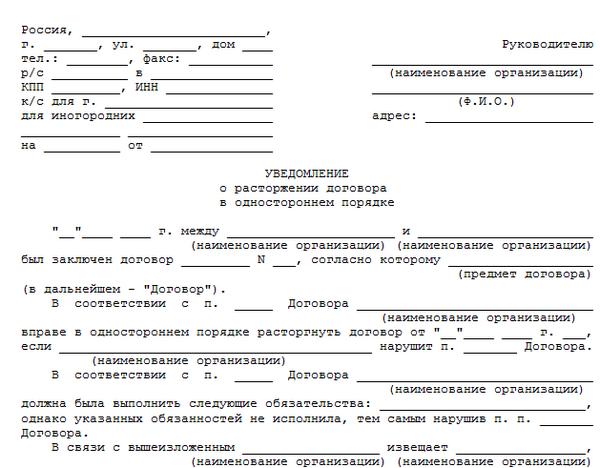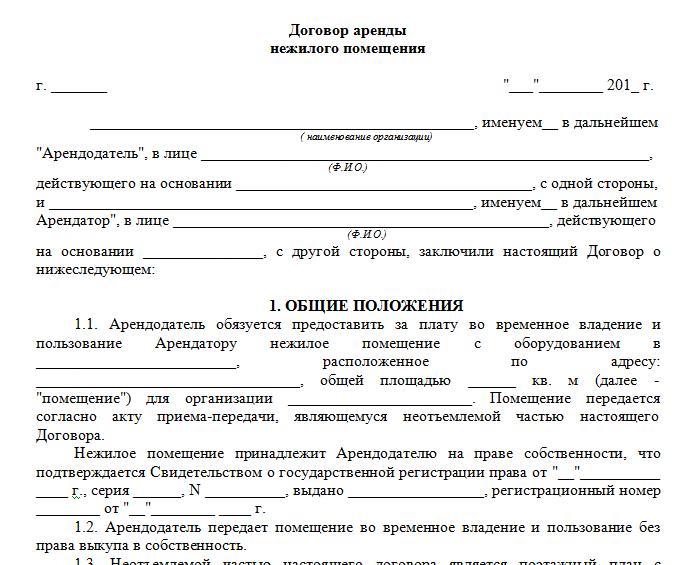Familiar to the perception of most citizens is the concept of bilateral and multilateral transactions. But few know about what a unilateral agreement is, although in practice one often encounters such documents.

How this procedure is carried out is stated in the Civil Code. At the same time, lawyers have no consensus on this issue. In the article, we will talk about what transactions are assigned the status of unilateral, what are their features and other significant points.
Key Points
The definition of the transaction is presented in Article 153 of the Civil Code of the Russian Federation. It states that a transaction may be concluded by one person or several persons. If one person takes part in it, then the transaction is called a unilateral agreement. In accordance with paragraph 2 of Art. 154 of the Civil Code of the Russian Federation, it is carried out by the will of one side, and this should be fixed in the agreement.
Both individuals and legal entities can take part in such a transaction. But if, in the case of legal entities, the written form is mandatory, then transactions between individuals are allowed to be made orally, with the exception of the following cases:
- The document is mandatory in accordance with the established requirements.
- One of the parties is an individual, and the other is a legal entity.
- The deal between individuals is concluded in an amount exceeding 10 thousand rubles.
The most common unilateral agreements include the following:
- Power of attorney.
- Statement of check.
- Purchase of goods from stock.
- Auction and other actions.

Features
Each transaction establishes, changes or terminates the rights and obligations of citizens. With its help, rights are granted to the person with whom she is detained, and duties are created for the one who committed it. A unilateral contract is eligible and binding.
General provisions apply to him, so the transaction may be challenged or invalidated. Currently, the legislation regarding contracts unilaterally cannot be called perfect. This is confirmed by ambiguous judicial practice. Therefore, in order to complete a one-sided transaction, you need to turn to professionals. Then you can be sure that in the future there will be no problems.
Unilateral transactions occupy a special place in the civil process. In order to realize the obligations on them, specific facts should be established. If the rights and interests of a person are violated by such a transaction, then it may be declared invalid.
Conditions
Some authors consider the pre-entry of a person into a legal relationship an important condition for most contracts unilaterally. Examples of this include:
- Termination of the tenant’s housing rental agreement, which is carried out in the existing housing relationship.
- A power of attorney issued in connection with an existing contract of instruction.
- Failure of the heir from the inheritance.
But this does not take into account a number of unilateral agreements under the Civil Code of the Russian Federation, carried out without a specific legal relationship.For example, when a tender is publicly announced, a company becomes a participant in a legal relationship. In this case, the subject of the transaction from which it is carried out does not always turn to the side of the corresponding legal relationship.
So, the heir does not become a party to the transaction after the testator draws a will on him. Therefore, in a one-way transaction, the addressee plays a passive role, which boils down to information that the corresponding rights and obligations are established, changed and terminated. In some cases, the addressee acts as a participant in an existing legal relationship, while in others - as an interested person who is not a participant.
It is important to understand that for a unilateral agreement on the Civil Code, a certain action is not enough. It is also necessary to bring its contents to the addressee. For example, upon termination of the contract, it is required to notify the counterparty.
If we take the contracts drawn up according to state standards (unilaterally and bilaterally), then we can see that the former is a completed action of a person, the consequences of which occur only with his will.
In contrast, for the occurrence of legal relations under a contract, counter-will is required. That is, the contract will become effective upon the expression of the will of at least two parties.

Principles
The main features of unilateral transactions include the following:
- Rightfulness.
- Strong-willed character.
- Goals.
- Motive.
Let us consider in more detail the types and samples of unilateral agreements.
Rightfulness
For a long time there has been debate about the "invalid transaction" and simply the "transaction" as conflicting concepts. The first does not bear any consequences for the one who committed it, except in cases related to the fact of invalidity itself. Invalidity is recognized from the date of execution.
Some lawyers believe that legitimate transactions can be recognized as such if they were, first of all, executed on a state model. The unilateral termination of an agreement written in this way requires notification of the other participant about its termination. If the transaction was executed in a free style and without the participation of a lawyer, then you do not even need to talk about its break, as it may be illegal. True, the nullity of transactions is revealed only in contact with the authorities. When independent, they act in the same way as legitimate ones. Such transactions are often found in practice.
Expression of will
As for the will, they distinguish between a will of an internal nature and an external expression. By volitional nature is meant the intention or desire of a particular subject to achieve a legal result. Thus, this refers to the expression or manifestation of the will of the external plane.
If the expression of will is contrary to the will of the internal plan of the subject, then the transaction may be deemed invalid due to its conclusion in error, under threat, and the like. Will plays an important role in interpreting the agreement. In accordance with Art. 431 of the Civil Code of the Russian Federation, if the meaning of the expressions used in the contract does not allow to clarify its content, the true will of the parties should be determined. This takes into account circumstances, including correspondence and negotiations, as well as established practice of legal relations, customs and so on.
Goals and motive
Speaking of goals, you need to take into account that casual and abstract deals distinguish. The latter refers to transactions in which the basis has no connection with the content, for example, a bank guarantee, a bill of exchange, and so on.
Motive has no independent meaning. When a transaction is declared invalid, for example, in the case of a lease agreement unilateral, it is not taken into account. This is stated in Art. 178 of the Civil Code.

Invalidation
In this case, you need to draw up a claim and send it to the court in the location of which the defendant is located.Even if a contract was drawn up according to the model, a termination unilaterally may be invalidated if the person is legally incapable, the transaction was completed as a result of a mistake or under threat. The same result will be if it does not comply with the form established by law.
The claim is drawn up in the usual form according to the number of persons who participate in the case. The name of the court, the plaintiff, his address, the name of the defendant and his address are registered in the upper right corner. The lawsuit should list the violated rights and provide a link to regulations. It is necessary to indicate the circumstances in which the plaintiff puts forward the relevant requirements, and provide evidence. If the claim can be assessed, then the claim value is indicated, as well as the amount of the penalty. It is also necessary to provide data on compliance with the dispute settlement procedure, as well as a list of documents. The claim also indicates other data necessary for a comprehensive review of the case.
Kinds
The classification of one-way transactions is diverse. They are mainly associated with legal consequences for the addressee. From this position, such expressions of will may be:
- Generating rights. These include a will giving rise to the right of ownership, and sometimes obligations to pay the debt of the deceased. The heir has the right to accept the inheritance or refuse it. They also include powers of attorney. This document prescribes certain actions that must be completed. But also specific instructions may not be mentioned (general power of attorney).
- Changing rights. These include acceptance of the inheritance, cancellation of the order before its execution and other similar rights.
- Establishing rights. These expressions of will are formulated by the party in relation to the already signed contract. For example, when one participant violates its terms, the injured party executes the transaction in order to recover damages.
- Terminating Rights. It is possible, for example, if the founder decides to leave the LLC. Another example is the unconditional right of a person to refuse an inheritance. Moreover, he may not indicate the reasons for making such a decision.

Unilateral transactions may be qualified on other grounds, for example, by the number of participants:
- On the one hand - when making a will or power of attorney, accepting an inheritance.
- With many persons - when issuing a power of attorney for several persons at once, with the promise of remuneration for a lost thing.
Other agreements may be:
- With legal consequences that depend on additional circumstances, for example, when the execution of a will is possible only if certain conditions of the deceased are fulfilled.
- With legal consequences, which depend on certain circumstances. For example, when issuing a power of attorney, a person receives specific rights on the day of signing the document with a notary.
Examples
Consider specific examples of such expressions of will:
- A check issued at the store. In this case, the seller confirms the payment by the buyer of the goods, as well as the fact of the transfer of ownership.
- Rejection of an inheritance, as well as its acceptance. Even if the heir did not know that the will was made, after the death of the testator he should receive a notification. After that, he will make a final decision. Without the consent of the heir, drawn up in the prescribed form, the property will not become its property. Thus, the heir has the right to refuse the inheritance.
- A public announcement of the competition that vests recipients with established rights if they meet the relevant conditions.
- Public reward for finding a thing.
- Set-off requirements, which is practiced between legal entities. For example, a company leases premises at a reduced cost, while another company writes off part of the debt in favor of the lessor.

One-way transaction
The process of expressing will is carried out in different ways, since the division of transactions into groups is only formal. For example, when preparing a will or power of attorney, you need to contact a notary, and to set off claims you need to draw up one or more agreements, conclude preliminary agreements, register the right to lease, property, etc.

The procedure for concluding a unilateral transaction is as follows:
- The text of the will is registered.
- A document is drawn up, which is then certified by a notary or in the registration state bodies.
- The recipient is notified in person or via mail. Subsequent actions are subject to legal provisions. For example, if it is not possible to find an heir by testament within six months, then another heir enters into the inheritance. Thus, the addressee has six months to declare his rights.
Conclusion
As you can see, unilateral transactions have common features with bilateral and multilateral, but at the same time they differ from the latter. Non-compliance of these transactions with established principles leads to their recognition as invalid. Division, although it is conditional, but helps to better understand this issue, in order to subsequently apply knowledge in practice.









